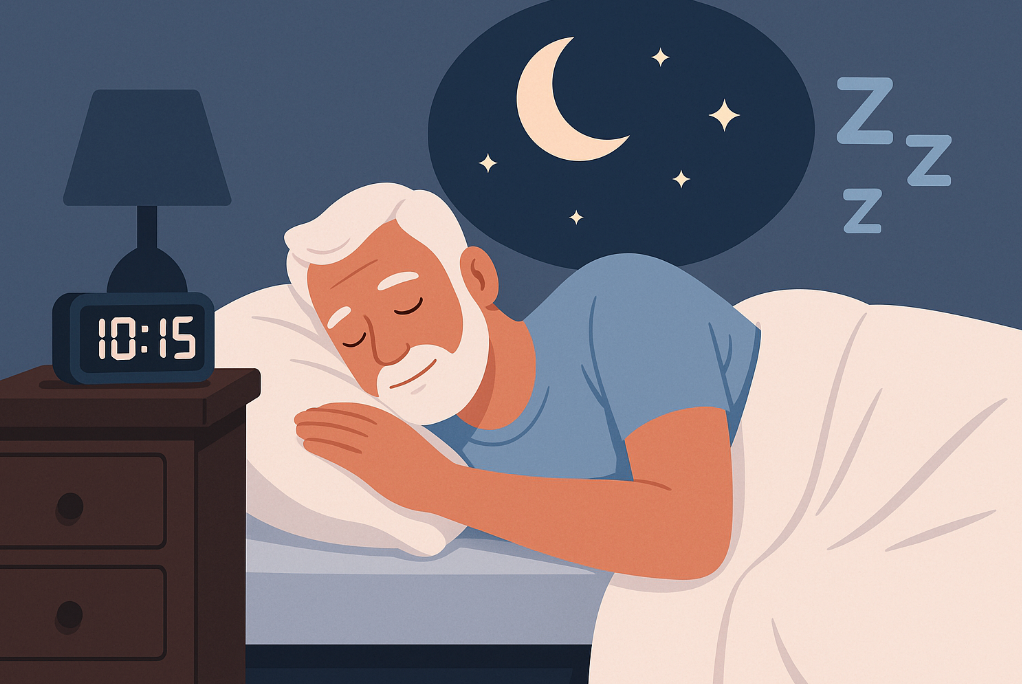Why Sleep Becomes Even More Essential With Age
Sleep is a cornerstone of health, but its importance becomes even more pronounced as we grow older. Many older adults experience changes in sleep patterns—difficulty falling asleep, lighter sleep, or waking up earlier than desired. While some of these changes are normal, chronic poor sleep can have significant consequences for physical, mental, and emotional well-being. Quality sleep is not a luxury; it is a vital component of healthy aging.
How Aging Affects Sleep
- Changes in Sleep Architecture
With age, the body spends less time in deep, restorative stages of sleep. This often leads to lighter sleep and more frequent awakenings throughout the night. - Circadian Rhythm Shifts
The internal body clock tends to shift earlier, meaning older adults may feel sleepy earlier in the evening and wake up earlier in the morning. - Medical Conditions and Medications
Chronic illnesses such as arthritis, diabetes, and heart disease can disrupt sleep. Certain medications may also cause insomnia or increased nighttime awakenings. - Sleep Disorders
Conditions such as sleep apnea, restless leg syndrome, and insomnia are more prevalent among older adults, further interfering with rest.
Why Sleep Matters for Older Adults
- Cognitive Health
Restorative sleep supports memory consolidation and cognitive function. Poor sleep is linked to increased risk of dementia and Alzheimer’s disease. - Emotional Well-Being
Adequate sleep reduces irritability, stabilizes mood, and lowers the risk of depression and anxiety. - Physical Health
Sleep promotes healing, supports immune function, and helps regulate blood pressure and blood sugar levels. According to the National Institute on Aging, poor sleep in older adults is linked to higher risks of cardiovascular disease. - Longevity and Quality of Life
Studies consistently show that older adults who maintain good sleep hygiene live longer, healthier lives with greater independence.
Tips for Better Sleep in Older Adults
- Maintain a Consistent Sleep Schedule: Going to bed and waking up at the same time daily reinforces the body’s circadian rhythm.
- Create a Restful Environment: Keep the bedroom cool, dark, and quiet. Avoid bright lights and loud noises.
- Limit Stimulants: Reduce caffeine and alcohol, particularly in the evening.
- Stay Active: Regular physical activity helps improve sleep quality, but avoid vigorous exercise right before bedtime.
- Practice Relaxation Techniques: Gentle stretching, meditation, or reading before bed can help calm the mind.
- Consult a Doctor: Persistent sleep issues may signal an underlying condition that requires medical attention.
Research and Expert Insights
- A Harvard Medical School report highlights that poor sleep accelerates cognitive decline in aging populations.
- The Sleep Foundation emphasizes that older adults still need 7–8 hours of sleep each night for optimal health.
- Studies published in Frontiers in Aging Neuroscience show a direct link between restorative sleep and slower biological aging.
Conclusion
Quality sleep is an essential pillar of healthy aging. By adopting proper sleep hygiene, staying active, and addressing medical concerns, older adults can greatly improve their sleep and, in turn, their overall quality of life. Investing in better sleep today means healthier, more vibrant years ahead.
🇰🇷 Premium Korean Ginseng Online Shop







